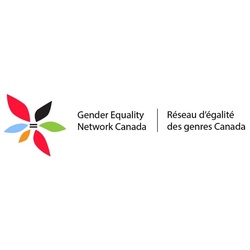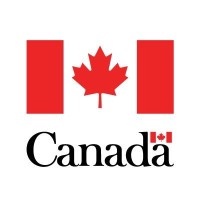
Zero Emission Vehicle Awareness Initiative — Light-Duty Vehicle — Not-for-profit
At a glance
- Up to 50% of project cost
- Closing date : September 27, 2023
- Utilities
- Transportation and warehousing
- Educational services
- Other services (except public administration)
- Canada
- Non-profit
- Public or Parapublic institution
- For-profit business
- All revenue ranges
- All organization sizes
- Indigenous Peoples
- Canadians
- Research
- Environment
- Economic, Social and Community Development
- Employment and Training
- Business Associations
- Professional Associations
- General public
- Indigenous peoples
- Business owners / entrepreneurs
- Nonprofits / charities
- Academia / students
- Community leaders
- All structures
- Municipal
- Regional
- Provincial
- National
- International
Overview
Get a contribution of up to $300,000 for your project to increase knowledge and public confidence.
Activities funded
This initiative funds projects that advance public awareness and education on zero-emission vehicles (ZEVs) and clean fuels in Canada. The eligible activities are designed to address knowledge gaps and increase confidence in adopting sustainable transportation solutions.
- Development of in-person or online education and/or awareness events, such as test drive opportunities.
- Creation of curriculum or training materials promoting knowledge of ZEVs and clean fuels.
- Execution of outreach and awareness campaigns targeting various audiences.
- Creation of web-based resources to educate the public and industry about ZEVs and clean fuels.
- Provision of in-person professional training or industry-led skills training focused on sustainable transportation technologies.
- Efforts to increase understanding of charging, refueling, and clean fuel options and technologies.
Eligibility
Eligibility for this grant requires applicants to be organizations and legal entities that meet specific criteria.
- Applicants must be validly incorporated or registered in Canada or internationally, including both not-for-profit and for-profit organizations.
- Eligible Canadian organizations include electricity or gas utilities, private sector companies, industry associations, research associations, standards development organizations, Indigenous and community groups, Canadian academic institutions, and provincial, territorial, regional, or municipal governments or their departments or agencies.
- Eligible international organizations include private sector companies, industry associations, research associations, standards organizations, and academic institutions.
- Softwood lumber companies and entities vertically integrated with such companies are not eligible for this funding opportunity.
- A separate funding stream is available for Indigenous-led Awareness and Education Projects, which remains open for applications until March 31, 2024.
Who is eligible?
To be considered for funding under the program, applicants must be: organizations and legal entities validly incorporated or registered in Canada including not-for-profit and for-profit organizations such as: electricity or gas utilities private sector companies industry associations research associations standards development organizations Indigenous and community groups (if interested, please inquire about the Indigenous-led funding opportunity) Canadian academic institutions provincial, territorial, regional or municipal governments or their departments or agencies, where applicable, or international legal entities validly incorporated or registered abroad including for-profit and not-for-profit organizations such as: private sector companies industry associations research associations standards organizations; and, academic institutionsThere is a separate funding stream available for Indigenous-led Awareness and Education Projects. The call for proposals is open for continuous intake applications until March 31, 2024. Find more information on Indigenous-led projects.Softwood lumber companies and those that are vertically integrated with softwood lumber companies are not eligible for funding under this opportunity.Who is not eligible
This grant excludes specific types of companies due to restrictions mainly related to affiliations with softwood lumber. The aim is to focus the funding on strategic initiatives conducive to advancing clean transportation and fuels.
- Softwood lumber companies.
- Companies that are vertically integrated with softwood lumber companies.
Eligible expenses
The grant supports initiatives to enhance understanding and confidence in zero-emission vehicles (ZEVs) and clean fuels. Eligible activities aim to address awareness and education gaps across various sectors and fuel technologies.
- Developing in-person or online education and awareness events, such as test drive opportunities.
- Creating curriculum or training materials.
- Conducting outreach and awareness campaigns.
- Creating web-based resources.
- Developing in-person professional training or industry-led skills training.
- Increasing knowledge of charging and refueling options as well as clean fuels technologies.
Eligible geographic areas
This grant is open to organizations and entities that are incorporated or registered in Canada. Additionally, international entities validly incorporated or registered abroad are also eligible to apply.
- Organizations incorporated or registered across Canada, including not-for-profit and for-profit entities.
- International organizations incorporated or registered outside of Canada.
Selection criteria
There are evaluation and selection criteria for this grant. The assessment of proposals will be based on various criteria to determine the successful applicants.
- Organization capacity and experience
- Clarity and alignment with program goals
- Innovativeness and potential impact
- Budget realism and cost-effectiveness
- Engagement with target audiences
- Evaluation and performance measurement plan
How to apply
Identify Eligibility
- Review the eligibility criteria to ensure your organization can apply.
- Check if your project fits into one or more of the specified areas of focus.
Prepare Application Materials
- Develop a comprehensive project proposal detailing objectives, expected outcomes, and alignment with program goals.
- Prepare supporting documentation such as budgets, timelines, and organizational information.
- Ensure the inclusion of information on how the project will increase awareness, knowledge, and public confidence in relevant areas.
Application Submission Process
- Compile all required documentation as per the application guidelines provided by NRCan.
- Submit the completed application and all supplementary materials by the specified deadline via the method outlined by NRCan.
Confirmation and Follow-Up
- Receive an acknowledgment from NRCan confirming receipt of your application.
- Await communication from NRCan regarding the assessment of your application and funding decision within 100 business days post-deadline.
Additional information
Here are additional relevant details for this grant:
- The service standards aim to achieve a response within specified timeframes for inquiries and application processing, targeting 80% success under normal circumstances.
- Information about successful projects will be shared once contribution agreements are signed.
- Multiple areas of focus can be integrated into a single application without disadvantage or advantage.
- Projects may begin upon receiving a Letter of Conditional Approval, at the applicant's risk regarding unreimbursed expenses.
Contacts
Frequently Asked Questions about the Zero Emission Vehicle Awareness Initiative — Light-Duty Vehicle — Not-for-profit Program
What is the Zero Emission Vehicle Awareness Initiative — Light-Duty Vehicle — Not-for-profit?
How much funding can be received?
Who is eligible for the Zero Emission Vehicle Awareness Initiative — Light-Duty Vehicle — Not-for-profit program?
What expenses are eligible under Zero Emission Vehicle Awareness Initiative — Light-Duty Vehicle — Not-for-profit?
Who can I contact for more information about the Zero Emission Vehicle Awareness Initiative — Light-Duty Vehicle — Not-for-profit?
Where is the Zero Emission Vehicle Awareness Initiative — Light-Duty Vehicle — Not-for-profit available?
Is the Zero Emission Vehicle Awareness Initiative — Light-Duty Vehicle — Not-for-profit a grant, loan, or tax credit?
More programs like this

Industrial Research Assistance Program (IRAP) – AI Assist
National Research Council Canada (NRC)
Incentives for medium and heavy-duty zero-emission vehicles (iMHZEV) Program
Transport Canada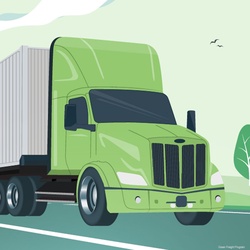
Green Freight Program — Assess and Retrofit
Natural Resources Canada (NRCan)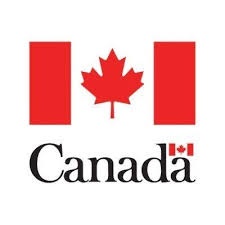
Canada Public Transit Fund
Housing, Infrastructure and Communities Canada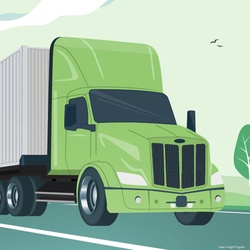
Green Freight Program — Repower and Replace
Natural Resources Canada (NRCan)
Mitacs Accelerate
Mitacs
Canada Service Corps – Service Placements Regional Stream
Employment and Social Development Canada (ESDC)
ISED — Artificial intelligence (AI)
Innovation, Science and Economic Development Canada (ISED)
Active Transportation Fund
Housing, Infrastructure and Communities Canada